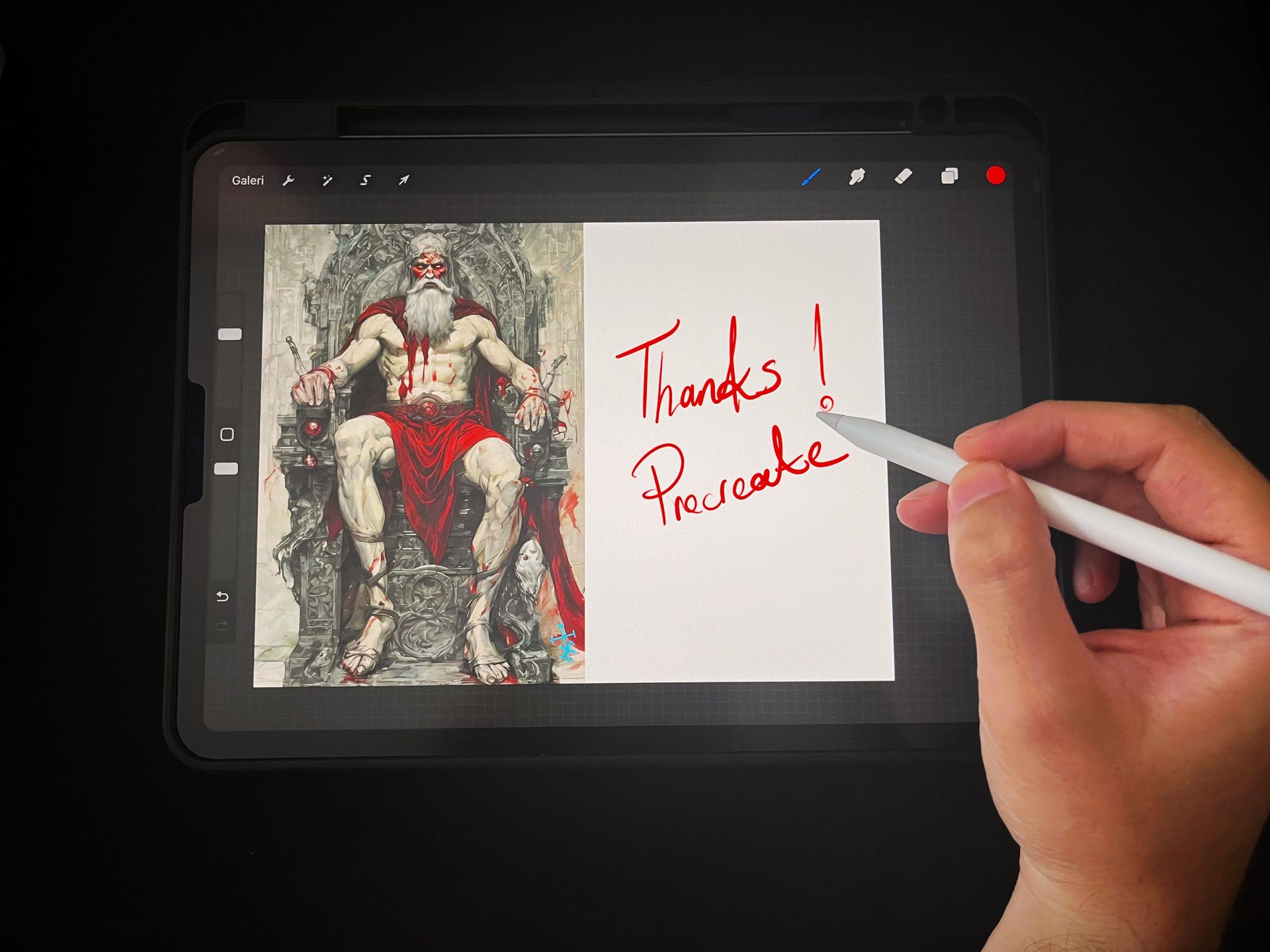Procreate draws the line: No AI allowed in their creative tools

Procreate, the widely-used iPad illustration app, has made a statement that artists have applauded, saying they oppose the integration of generative AI.
CEO James Cuda announced this decision in a video, leaving no room for doubt: “We’re not going to be introducing any generative AI into our products.” This statement was officially like intimidation to Adobe as they used the slogan “Creativity is made, not generated.” on their official site.
We’re never going there. Creativity is made, not generated.
You can read more at https://t.co/9Fgh460KVu  #procreate #noaiart pic.twitter.com/AnLVPgWzl3
#procreate #noaiart pic.twitter.com/AnLVPgWzl3
— Procreate (@Procreate) August 18, 2024
Procreate said: AI is not our futureProcreate’s announcement has been met with widespread approval from digital creatives, who have grown increasingly wary of how AI might shape the future of their industry. Many feel that AI-generated content could undermine the very essence of artistic creativity, which relies on human emotion, experience, and skill. Cuda’s statement, “I don’t like what’s happening to the industry, and I don’t like what it’s doing to artists,” resonates deeply with those who believe creativity should remain a human endeavor.
The concerns about AI go beyond just creative integrity. Many artists are worried about the legal and ethical implications of AI, particularly when it comes to using their work to train these models. Generative AI, by its nature, requires vast amounts of data, and much of that data comes from the work of artists who have not given consent or been compensated. This has led to a growing backlash within the creative community, with some even abandoning apps that have begun to integrate AI tools.
 In recent years, several artists have filed lawsuits against AI platforms like Midjourney, accusing them of using their artwork without consent (Image credit)
In recent years, several artists have filed lawsuits against AI platforms like Midjourney, accusing them of using their artwork without consent (Image credit)
In recent years, several artists have filed lawsuits against AI platforms like Midjourney, accusing them of using their artwork without consent. One notable case involved artist Greg Rutkowski, whose distinct style was frequently used by AI models without his permission. Another case saw the comic book artist Sarah Andersen join a class-action lawsuit against companies like Stability AI, the creators of Midjourney, and DeviantArt for allegedly scraping millions of images from the internet to train their AI models. These lawsuits underscore the growing tension between the creative community and AI developers, as artists fight to protect their intellectual property and maintain control over their work.
Why Procreate’s stance mattersWith so many companies racing to integrate AI, Procreate’s decision to keep it out is a good and traditional one. This commitment is also reflected on their official website: “AI is not our future. Creativity is made, not generated.” The company’s position is clear: while machine learning has its advantages, the current trajectory of productive AI does not align with its vision for the future of creativity.
Procreate 1, Adobe 0 https://t.co/SAWZlp0X2X
— Jorge R. Gutierrez (@mexopolis) August 19, 2024
This decision stands in stark contrast to the actions of some of Procreate’s competitors. For example, Clip Studio Paint, another popular illustration app, was forced to backtrack on its plans for AI-driven image creation after facing backlash from its users. Similarly, companies like Wacom and Wizards of the Coast have apologized for their unintentional use of AI-generated content, showing how sensitive the issue has become within the creative community. Adobe, on the other hand, continues to integrate AI into almost every application and this has been the most criticized aspect of X.
Now this is integrity. An example of ethics in our creative community. Fantastic. https://t.co/RQNWcuaSAX
— Sebastiaan de With (@sdw) August 18, 2024
The creative community’s responseThe creative community’s reaction to Procreate’s announcement has been overwhelmingly positive. In an industry where subscription models and AI integration have become the norm, Procreate’s commitment to a one-time purchase model and its clear stance on AI have endeared them even further to their user base. The $12.99 price tag, coupled with a pledge to keep AI out of their tools, makes Procreate an increasingly attractive option for artists who feel their choices are becoming limited.
Adobe, on the other hand, has found itself on the receiving end of criticism for its AI initiatives. Despite efforts to build AI tools that are ethically sourced, many in the creative community feel that Adobe has strayed too far from its roots, prioritizing technology over the artists who rely on their products. This sentiment was only amplified when Adobe had to clarify that its AI models are not trained on user content, a statement that did little to soothe the growing discontent.
Featured image credit:
